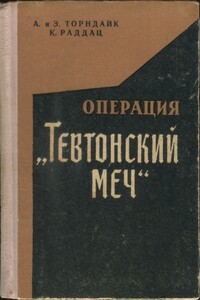The Run of His Life: The People v. O. J. Simpson - [14]
Fuhrman said he knew. He told Phillips that when he was a uniformed patrol officer in West L.A., he had gone on a radio call to the Simpson home. “I went up there a long time ago on a family dispute,” Fuhrman said. “I think I can find it.” He didn’t remember the exact address, but Riske, who had run the plates on the Jeep parked in Nicole’s garage, told Fuhrman that the plates had come back to 360 North Rockingham. In his report of the evening’s activities, Lange summarized Fuhrman’s information this way: “Mr. Simpson and victim had been embroiled in previous domestic-violence situations, one of these resulting in the arrest of Mr. Simpson.” (Phillips later testified he did not remember any such discussion that evening, although it is possible he simply did not hear what Fuhrman said to Lange.) So, at just about 5:00 A.M., Phillips and Fuhrman led Vannatter and Lange in a two-car caravan from Bundy to Rockingham. The two-mile trip took about five minutes.
As the two cars made a right turn off Sunset Boulevard onto Rockingham Avenue, the terrain changed and the houses grew larger, grander. Traveling uphill along the silent street, the detectives strained to see the house numbers painted on the curbs. Earlier in his career, Vannatter had spent four years as a detective in West L.A., yet he had never driven on or even heard of Rockingham. It was not the kind of street that generated much police activity. Still, on that night he noticed one of the customs of the neighborhood. Rockingham was not a major artery, but it did serve as the conduit to Sunset for many smaller streets, and residents tended to avoid parking on it so that traffic could move freely. On this night, Rockingham was empty-except for a single vehicle. Just before the detectives reached the intersection of Rockingham Avenue and Ashford Street, Vannatter noticed a white Ford Bronco by the curb. On closer inspection, it appeared that the vehicle was slightly askew, as if it had been hurriedly parked. As it turned out, this car was stopped directly in front of number 360, which occupied the corner lot. The detectives turned right onto Ashford and parked their two cars near an iron gate set in the brick wall that surrounded O.J. Simpson’s property.
A couple of lights were on in the house, and there were two cars in the driveway. Vannatter rang the buzzer by the gate. No answer. He rang some more, and then Phillips and Lange rang for a while. Still no response. A medallion posted near the house announced that it was protected by Westec, a prominent security firm in Los Angeles. By coincidence, a marked Westec car happened to drive by, and the detectives flagged it down. They persuaded the security guard to give them Simpson’s home telephone number. (The guard also said that according to Westec records, a full-time housekeeper was usually on the premises.) At 5:36 A.M., Phillips began calling Simpson’s number on his cellular phone, but Simpson’s answering machine-“This is O.J.,” the message began-took the call each time.
Fuhrman hung back while the other three detectives tried to raise someone in the house. Though he had been a police officer for nineteen years, he was a level-two detective while the others were at level three; in the hierarchical world of the LAPD, it was therefore his place to defer. So, with nothing to do, Fuhrman wandered around the corner, back to Rockingham, and over to the Bronco. He shined his small pocket flashlight into the back and saw papers addressed to O.J. Simpson. Fuhrman then studied the driver’s door and noticed a small red stain just above the handle. Near the bottom of the door, on the exposed portion of the doorsill, he saw several more thin red stripes.
“I think I saw something on the Bronco,” Fuhrman called to Vannatter.
The senior detective came by to study the vehicle more closely, and the two men agreed that the stains looked like blood. Vannatter directed Fuhrman to run the license plates and see who owned the car. The plates came back to the Hertz Corporation, whose products Simpson had long endorsed.
Vannatter and Lange conferred. They decided that Vannatter would radio a request for a police criminalist to come and test the stain and see if it really was blood on the Bronco door. More generally, as they testified later, Vannatter and Lange were growing concerned about what might have happened inside Simpson’s property. They had just come from the scene of a brutal murder. Someone was supposed to be living at the Simpson home-at least a housekeeper-and there was no answer, even though lights were on. There appeared to be blood on the car outside. As Lange said later in court, “I felt that someone inside that house may be the victim of a crime, maybe bleeding or worse.” Vannatter testified, “After leaving a very violent bloody murder scene, I believed something was wrong there. I made a determination that we needed to go over-to go into the property.” Fuhrman-by far the youngest and fittest of the four detectives on the scene-volunteered. “I can go over the wall,” he said. “Okay, go,” said Lange. Fuhrman hoisted himself over the six-foot-high brick wall, then stepped to his right and manually opened the hydraulic gate. The four detectives entered O.J. Simpson’s property.

Книга представляет собой исследование англо-афганских и русско-афганских отношений в конце XIX в. по афганскому источнику «Сирадж ат-таварих» – труду официального историографа Файз Мухаммада Катиба, написанному по распоряжению Хабибуллахана, эмира Афганистана в 1901–1919 гг. К исследованию привлекаются другие многочисленные исторические источники на русском, английском, французском и персидском языках. Книга адресована исследователям, научным и практическим работникам, занимающимся проблемами политических и культурных связей Афганистана с Англией и Россией в Новое время.

"Великий человек, яркая личность, Божий дар Беларуси" - так Михаила Николаевича Пташука называли еще при жизни наши современники и с любовью отмечали его уникальный вклад в развитие отечественного, российского и мирового кинематографа. Вклад, требующий пристального внимания и изучения. "И плач, и слёзы..." - автобиографическая повесть художника.

Тюрьма в Гуантанамо — самое охраняемое место на Земле. Это лагерь для лиц, обвиняемых властями США в различных тяжких преступлениях, в частности в терроризме, ведении войны на стороне противника. Тюрьма в Гуантанамо отличается от обычной тюрьмы особыми условиями содержания. Все заключенные находятся в одиночных камерах, а самих заключенных — не более 50 человек. Тюрьму охраняют 2000 военных. В прошлом тюрьма в Гуантанамо была настоящей лабораторией пыток; в ней применялись пытки музыкой, холодом, водой и лишением сна.

В книге рассказывается история главного героя, который сталкивается с различными проблемами и препятствиями на протяжении всего своего путешествия. По пути он встречает множество второстепенных персонажей, которые играют важные роли в истории. Благодаря опыту главного героя книга исследует такие темы, как любовь, потеря, надежда и стойкость. По мере того, как главный герой преодолевает свои трудности, он усваивает ценные уроки жизни и растет как личность.

Брошюра написана известными кинорежиссерами, лауреатами Национальной премии ГДР супругами Торндайк и берлинским публицистом Карлом Раддацом на основе подлинных архивных материалов, по которым был поставлен прошедший с большим успехом во всем мире документальный фильм «Операция «Тевтонский меч».В брошюре, выпущенной издательством Министерства национальной обороны Германской Демократической Республики в 1959 году, разоблачается грязная карьера агента гитлеровской военной разведки, провокатора Ганса Шпейделя, впоследствии генерал-лейтенанта немецко-фашистской армии, ныне являющегося одним из руководителей западногерманского бундесвера и командующим сухопутными силами НАТО в центральной зоне Европы.Книга рассчитана на широкий круг читателей.

Книга Стюарта Джеффриса (р. 1962) представляет собой попытку написать панорамную историю Франкфуртской школы.Институт социальных исследований во Франкфурте, основанный между двумя мировыми войнами, во многом определил не только содержание современных социальных и гуманитарных наук, но и облик нынешних западных университетов, социальных движений и политических дискурсов. Такие понятия как «отчуждение», «одномерное общество» и «критическая теория» наряду с фамилиями Беньямина, Адорно и Маркузе уже давно являются достоянием не только истории идей, но и популярной культуры.